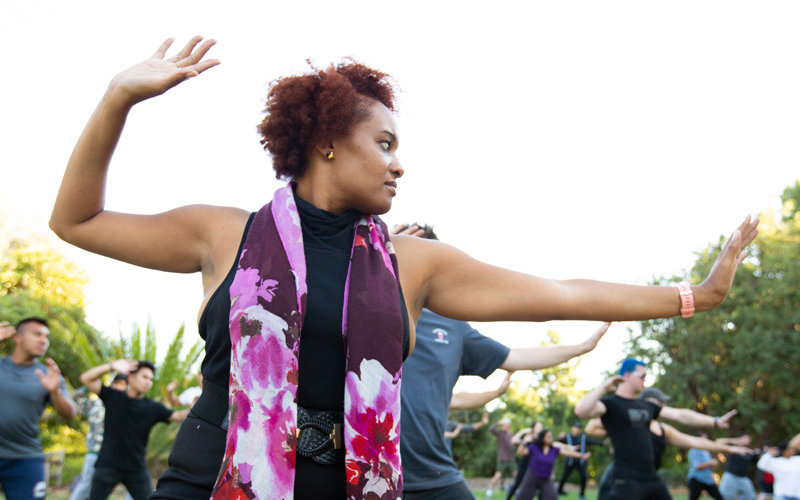
Portia Jackson Preston knows self-care. She’s hosted a TedX Talk on the topic and she began her own self-care rituals out of necessity several years ago, when her body demanded she slow down and take a more intentional approach to wellness.
So, it’s no surprise that the assistant professor of public health at Cal State Fullerton jumped into action in response to the COVID-19 pandemic, reminding others to take time to practice self-care as her campus navigates a stressful shift to a socially distanced, virtual teaching environment.
Cal State Fullerton has no cases of presumed or confirmed cases of COVID-19 on campus, but the university, the largest in the California State University system, is now teaching courses entirely online through May 22. She says along with the technological resources to support teaching, her colleagues should consider a toolbox of tips for coping with the pandemic. She offers these 10 tips.
10. Reach out. Since we all are taking social distance precautions, it is important to avoid feeling completely isolated from the world. Check on a loved one, a friend or colleague each day. Use technology to schedule interactive chats. It’s good to have someone else to share life with.
9. Create boundaries. Take time to notice your patterns and create boundaries that work for you — such as checking the news, your social media, or email at set intervals throughout the day. Try to engage in something that gets you out of the news loop — a favorite comedy, a book on an unrelated topic, music, art, etc.
8. Get physical. Go for a walk. Stretch. Roll out your tense muscles on a foam roller. Do a YouTube exercise video. You’ll feel better mentally and emotionally when your body has a chance to get out of its cramped sitting position. Create a daily routine that involves movement, and when possible, exposure to natural light.
7. Check on yourself. Prioritize your mental health. If you have a therapist, now is a great time to check in (some may be switching to online modalities if they can, so keep this in mind as an option).
6. Check out. Mindfulness meditations help to ease an anxious brain. Consider listening to meditations on sleep, spirituality, anger, focus, smartphone addiction, self-compassion, and any other topic that comes to mind.
5. Allow yourself to feel. We are inclined to believe that we should demonstrate grit and resilience by enduring the toughest of situations without showing emotional wear and tear. However, it’s realistic to feel a full range of emotions. You might feel okay one moment, and overwhelmed the next. Use a journal to express what you are feeling and to note what you are grateful for on a daily basis. Having compassion for yourself will help you to practice compassion with others.
4. Be patient. No one has all of the answers, yourself included. It’s okay to feel passionate about matters that have to do with the safety and well-being of yourself, your loved ones, and those you are responsible for. However, jumping to anger only makes things harder on everyone. Give people space and time, and try to be understanding if someone makes a mistake. It’s inevitable.
3. Try kindness. You are undoubtedly going to run into your share of frustrations, but we all possess the capacity to be kind. Each day, try to be intentionally kind to at least one person. That might be the highlight of their day, and it might make you feel good as well.
2. Practice homemade self-care. Right now, any self-care practice that is in line with social distancing is en vogue. Try arts and crafts. Take a bubble bath or a hot shower. Make a cup of tea and drink it slowly. Make it a point to be present to your senses as you eat a meal, taking time to truly savor the taste, texture, and appearance.
1. Slow down and breathe. Sometimes, without realizing it, a situation we’re thinking about in our mind has seemingly permeated our body, leaving us with hunched shoulders and furrowed eyebrows. Take a moment to practice mindfulness. Pay attention to what is going on in your physical body, and allow yourself to take a deep breath and relax.
Contact: Cerise Valenzuela Metzger, cmetzger@fullerton.edu